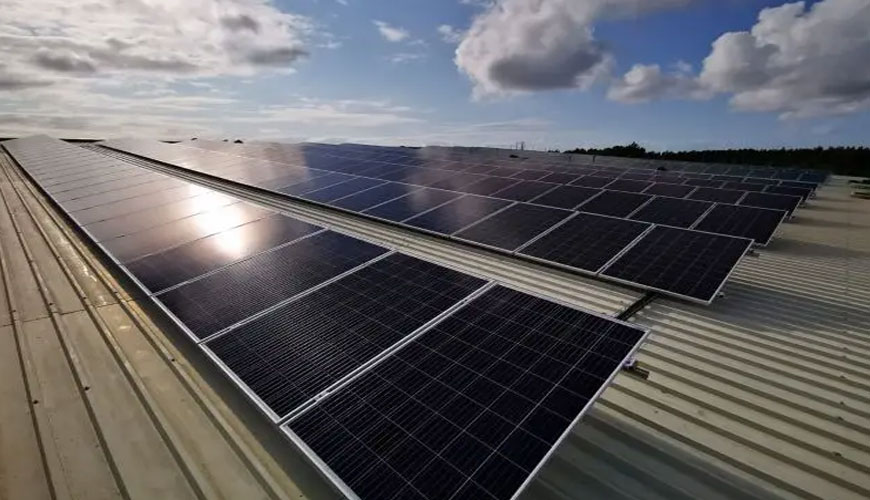

EUROLAB, with its state-of-the-art accredited laboratories and expert team, offers precise and rapid testing services within the scope of IEC EN 61215-2 testing. IEC EN 61215-2 sets out requirements for the design adequacy of terrestrial photovoltaic modules suitable for long-term operation in outdoor climates.

This standard is intended to apply to all terrestrial flat plate module materials, such as thin-film modules as well as crystalline silicon module types. The purpose of this series of tests is to determine the electrical characteristics of the module and to demonstrate, as far as possible within reasonable cost and time constraints, that the module can withstand prolonged exposure outdoors.
In climates where the 98th percentile operating temperature exceeds 70°C, users are recommended to test to higher temperature test conditions as described in IEC TS 63126. Users requiring the qualification of PV products with lower life expectancy are advised to consider tests designed for consumer PV. electronics, as described in IEC TS 63163 (under development). Users who wish to gain confidence that the properties tested in IEC EN 61215 appear consistently in a manufactured product may wish to use IEC 62941 for quality systems in PV manufacturing.
This standard is intended to apply to all terrestrial flat plate module materials, such as thin-film modules as well as crystalline silicon module types.
Although this standard can be used for low-concentration modules, it does not apply to modules used with concentrated sunlight. For low concentration modules, all tests are performed using the expected irradiance, current, voltage and power levels at the design concentration.
The purpose of this series of tests is to determine the electrical characteristics of the module and to demonstrate, as far as possible within reasonable cost and time constraints, that the module can withstand prolonged exposure outdoors. Accelerated test conditions are empirically based on those required to reproduce selected observed field failures and apply equally across module types. Acceleration factors may vary depending on product design and therefore not all degradation mechanisms may occur. Further general information on accelerated test methods, including definitions of terms, can be found in IEC 62506.
Some long-term degradation mechanisms can only be reasonably detected through component testing due to the long periods required to produce failure and the requirement for stress conditions that are expensive to produce over large areas.
EUROLAB assists manufacturers with IEC EN 61215-2 test compliance. Our test experts, with their professional working mission and principles, provide you, our manufacturers and suppliers, the best service and controlled testing process in our laboratories. Thanks to these services, businesses receive more effective, high-performance and quality testing services and provide safe, fast and uninterrupted service to their customers.
To get an appointment, to get more detailed information or to request an evaluation, you can ask us to fill in our form and reach you.